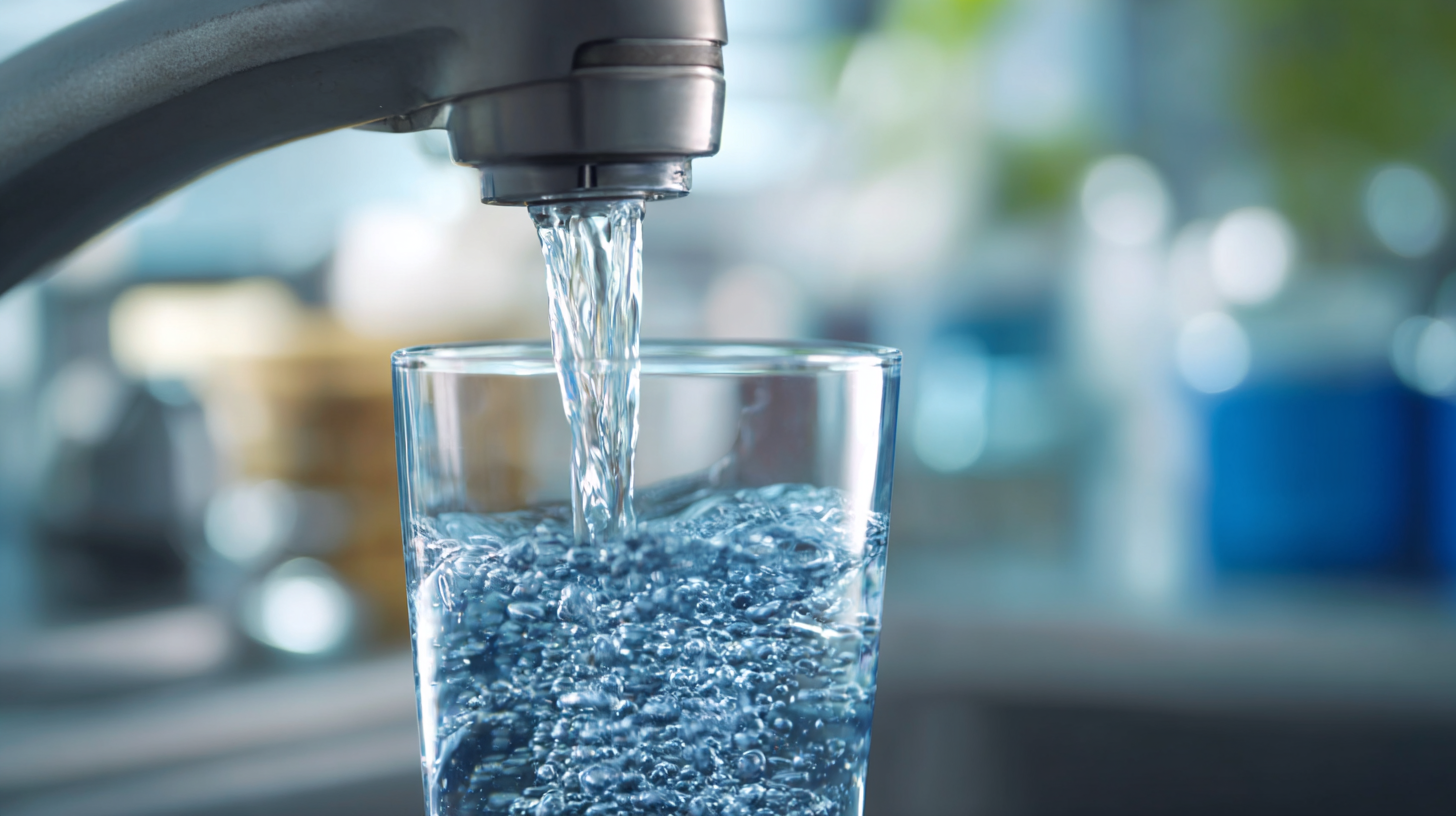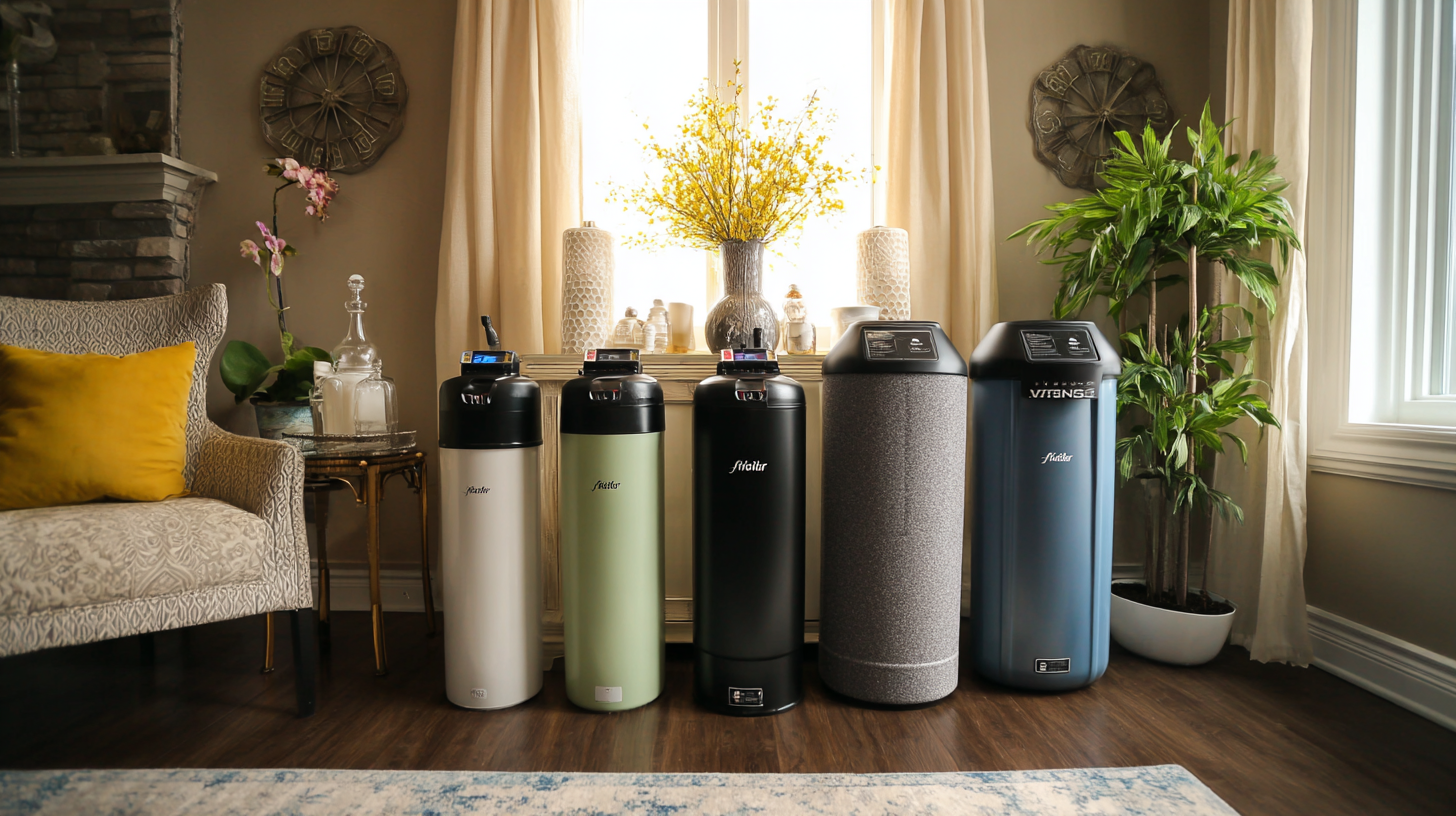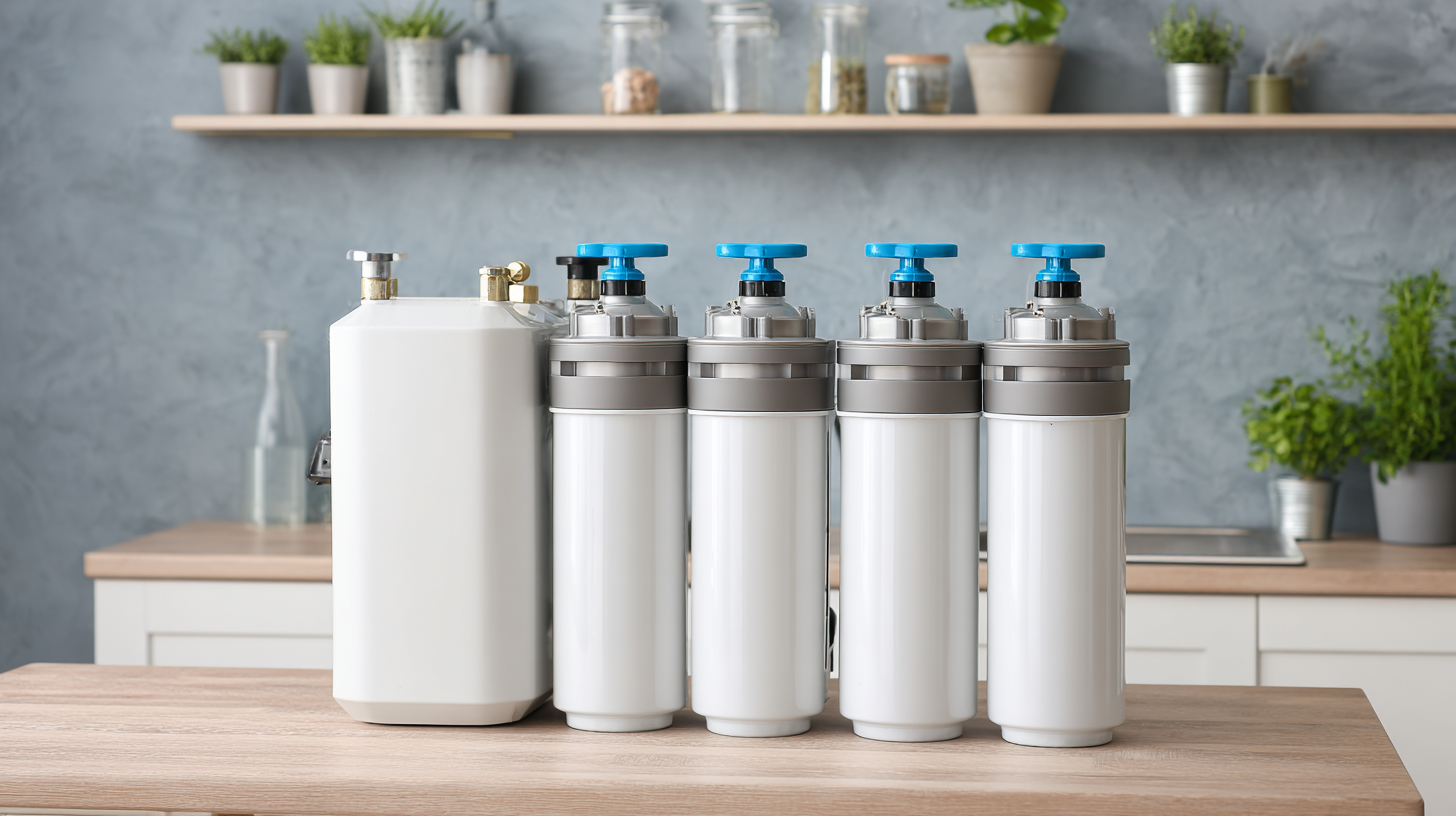

In today's world, the quality of our water profoundly impacts our daily lives and overall health. As we become more aware of the hidden dangers lurking in our tap water, the demand for solutions has surged. One such solution, a home water softener, has emerged as a vital ally in combating water hardness and enhancing our well-being. According to a recent report by the Water Quality Association, approximately 85% of American households deal with hard water issues, leading to adverse effects such as skin irritation, appliance damage, and reduced efficiency in soap and detergent use.
Renowned industry expert Dr. Sarah Thompson, a leading researcher in water treatment solutions, emphasizes the significance of addressing water hardness: "Investing in a home water softener not only elevates the quality of your water but can also significantly improve your quality of life." By softening water, households can enjoy softer skin, shinier hair, and increased longevity of plumbing and appliances. As we delve deeper into the transformative effects of home water softeners, we'll explore the top five ways they can revolutionize your daily routine and enhance your health.

Water hardness is a critical factor that affects our daily lives and overall health, especially in rapidly urbanizing regions. Hard water, rich in dissolved minerals like calcium and magnesium, can lead to a range of practical inconveniences. Homes with hard water often experience issues such as limescale buildup on faucets, reduced soap efficiency, and a negative impact on laundry quality. These problems can escalate over time, affecting not only household maintenance but also personal health through prolonged exposure to these minerals.
Recent studies suggest that water quality may extend beyond mere inconvenience, potentially influencing health outcomes such as cognitive function. Areas with poor water quality are linked to higher risks of serious health issues, including neurodegenerative diseases. This connection emphasizes the importance of addressing water hardness within the broader context of community health. Investing in water softening solutions in homes could not only enhance daily living experiences but also contribute to better long-term health results for residents.
| Aspect | Impact of Hard Water | Benefits of Water Softening |
|---|---|---|
| Skin Health | Dryness, irritation, and exacerbation of conditions like eczema | Softer skin, reduced irritation, and improved overall hydration |
| Hair Quality | Dullness, frizz, and hard-to-manage texture | Smoother, shinier hair that is easier to style |
| Appliance Longevity | Scaling and reduced efficiency | Increased lifespan and efficiency of appliances like dishwashers and water heaters |
| Laundry | Colored fabrics fading and stiff textures | Brighter colors and softer fabrics that feel new |
| Water Heater Efficiency | Reduced efficiency due to scale buildup | Lower energy bills and extended heater lifespan |
| Taste and Odor | Metallic or unpleasant taste due to minerals | Cleaner, more pleasant tasting water |
Hard water can significantly impact your daily life and health without you even realizing it. If you notice chalky white spots on your dishes or faucets, it's a clear indication that your water may contain high mineral content. Moreover, if you're experiencing dry skin or hair that feels brittle after showering, these might be signs that a water softener is needed. The excessive minerals can prevent soap from lathering properly, leading to skin irritation and dull hair.
Tip 1: Conduct a simple test by pouring a small amount of dish soap in a jar of tap water and shaking it. If there’s minimal suds, your water may be hard and a softener could help.
In addition to these signs, you might find your laundry looking lifeless or feeling stiff after washing. Hard water can prevent detergents from working effectively, resulting in dingy whites and faded colors. If you notice an increase in soap scum in your bathtubs and showers, it may be time to consider a home water softener.
Tip 2: Keep an eye on your water heater’s efficiency. Hard water can lead to scale buildup, which can significantly reduce its lifespan and efficiency. A water softener can help protect your appliances by minimizing mineral deposits.
The benefits of softened water extend far beyond just aesthetic improvements in your home. One of the most significant advantages lies in its impact on health and wellness. Hard water, which contains high levels of minerals like calcium and magnesium, can lead to various skin issues such as dryness and irritation. In contrast, softened water can enhance skin hydration, making it feel smoother and healthier. Additionally, for those with sensitive skin or conditions like eczema, using softened water may reduce flare-ups and promote overall skin comfort.
Beyond skin health, softened water also supports better hair quality. Washing hair in hard water can leave it feeling dull and lifeless due to mineral buildup. Softened water, on the other hand, allows for easier rinsing and reduces residue, resulting in shinier and more manageable hair. Moreover, when it comes to overall hydration, using softened water for drinking and cooking can contribute to a healthier lifestyle, as the absence of harsh minerals supports better absorption of nutrients in the body. By choosing a home water softener, individuals can enjoy a multitude of health benefits that elevate their everyday living experience.
When considering a home water softener, it's crucial to choose the right one tailored to your specific needs. According to industry studies, nearly 85% of households in the United States have hard water, which can lead to issues such as scale buildup in plumbing systems, increased energy bills, and diminished appliance lifespan. A quality water softener can mitigate these issues by removing minerals like calcium and magnesium, resulting in not only improved water quality but also healthier skin and hair due to reduced mineral deposits.

When selecting a water softener, it’s essential to assess factors such as water hardness level, the size of your household, and your daily water consumption. For instance, families with more than four members may benefit from a system with a higher grain capacity to ensure optimal performance. Additionally, look for systems that use efficient regeneration processes, as they significantly reduce water waste.
According to the Water Quality Association, modern water softeners can save users up to 30% on energy usage when properly installed and maintained, underscoring the long-term benefits of investing in the right system for your home.
Installing a home water softener can be a game changer for your household, greatly enhancing both your daily life and overall health. To ensure optimal performance, it’s essential to follow proper installation guidelines. Begin by selecting the right size softener tailored to your household's water usage. This will prevent wear and tear on the system while effectively managing hard water issues. Employing a professional plumber can guarantee correct installation and bring peace of mind.
For maintaining your water softener, regular salt checks and timely refills are key. Tip: Keep a calendar reminder for salt replacement every month to avoid running low and compromising your softener's effectiveness. Additionally, clean the brine tank biannually to remove any build-up of minerals and ensure smooth operation. Another tip is to test your water quality at least once a year to monitor hardness levels, allowing you to adjust your softener settings if necessary. These simple steps will keep your water softener running efficiently, providing you with the soft water benefits you seek.
